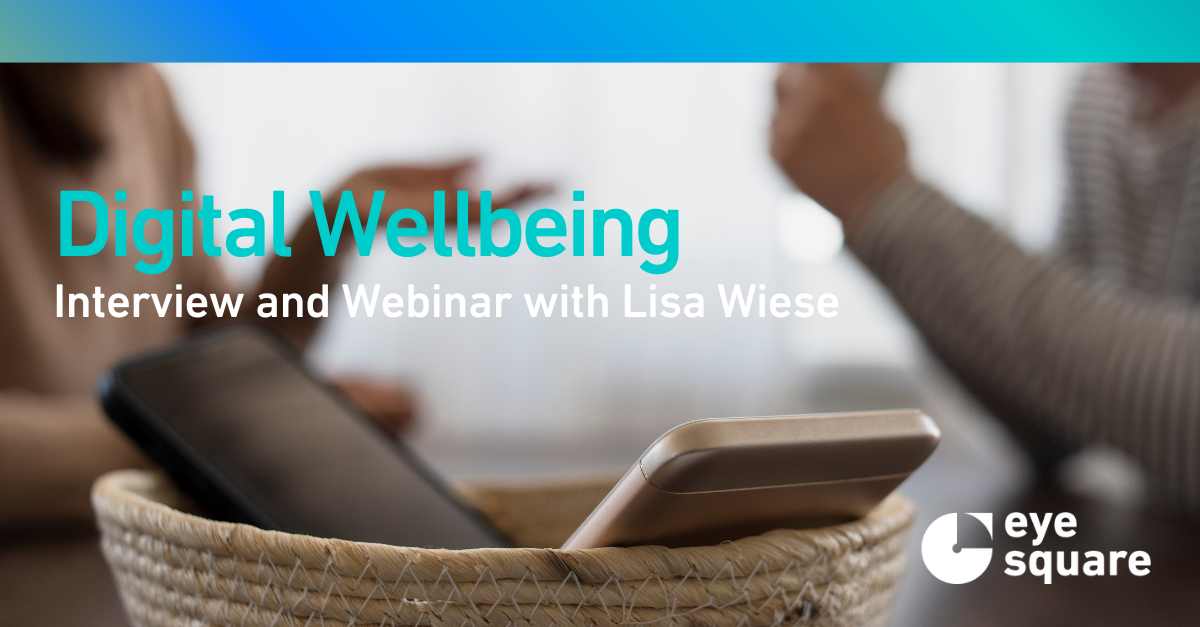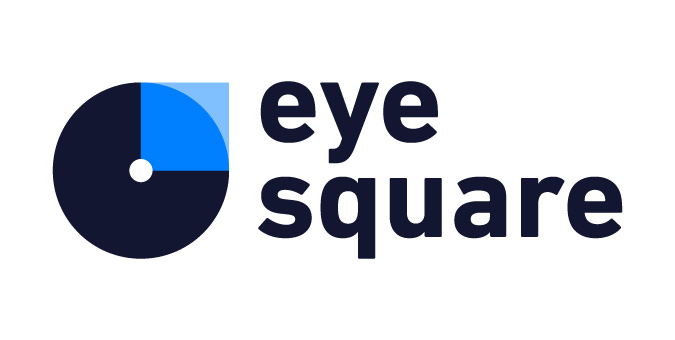19 Jul Digital Wellbeing | Interview-series and Webinar at marktforschung.de

In a three-part interview series posted on marktforschung.de, Lisa Wiese, Director Human Experience at eye square, explores digital wellbeing. Digital Wellbeing expands upon user experience (UX) and considers the holistic experience and well-being when developing digital products and applications.
Companies should explore Digital Wellbeing, as it focuses on strengthening customer loyalty and competitiveness in the long term by adapting digital products to the user.
Digital Wellbeing also has an impact on competition in saturated markets. Users search for ways to use technology less as they grow more conscious of its drawbacks. Subsequently, companies that focus on long-term value and emphasize eudaimonic factors can gain a competitive advantage.
“Digital wellbeing is a complex concept. This is also reflected in its measurement.”
Strong usability and satisfaction of use are no longer sufficient in the context of assessing products and digital applications. It is important to promote the long-term well-being of users through positive interventions, such as maintaining social relationships, doing good for others, positive thinking, recognizing the achievements of others, and caring for physical and mental health.
Overall, the concept of digital wellbeing expands on the user experience and considers long-term wellbeing that goes beyond direct product interaction. Companies should focus on creating digital products that provide long-term value and well-being for users.
In the second part of the interview, Lisa Wiese discusses the concept of Digital Wellbeing as a response to the negative effects of using digital services. A positive user experience (UX) is now seen as essential to the market success of a product or brand. Wiese sees a positive UX as a crucial part of a positive CX because users increasingly reflect on their technology use and actively try to protect themselves from negative consequences.
“Digital Wellbeing has become a reaction to the negative consequences of the use of digital services.”
In order to achieve beneficial effects of product use, such as improved UX, users must first gain awareness of the product. This requires synchronizing other CX touchpoints, such as brand communication and marketing, with the UX. It is important for marketing to understand these user needs. If a company is really serious about digital wellbeing, this should be reflected in the entire customer journey.
Lisa Wiese’s research explores how everyday technologies can promote respectful and friendly digital communication. This involves incorporating principles of positive psychology and developing design principles and measurement methods based on the literature. Many US companies have already integrated “Time Well Spent” into their corporate metrics, but there is also potential for the German market.
Digital technologies have become an integral part of our lives and offer potential for positive enrichment. However, they also have negative impacts on social relationships, political outcomes and young people’s mental health.
“Digital technologies can also lower the quality of interpersonal relationships.”
Digital technologies are often designed to maximise user engagement, leading to prolonged use and potential technology dependency. This leaves less time for meaningful interpersonal relationships and important life goals.
Studies show that the portrayal of unrealistic images and lifestyles on social media can distort self-perception and lead to mental health problems. Misinformation can polarise society and reinforce extreme viewpoints.
In part three of the interview series, Lisa Wiese sheds light on the complex relationship between digital technologies and human well-being. Although these technologies offer many benefits, their potential negative impact on relationships, mental health and society cannot be ignored.
The consideration of wellbeing in product development and UX research is UX research is crucial to ensure that digital technologies truly technologies truly enrich the lives of users.
Read the third of the interview in the original, German version at marktforschung.de!
Register for the webinar at UX Research Days with Lisa Wiese on 23 August 2023 at 2pm!
The webinar “Digital Wellbeing: Potential for UX Research” provides background information and an update on the topic.
Learn about the negative long-term consequences of using digital technologies and how you can better recognise them. Lisa Wiese also explains how human well-being is defined, how it can be promoted in user interface design, and which options are available for measuring Digital Wellbeing in digital technologies.
The following questions will be explored in more depth in this webinar:
- What is Digital Wellbeing and how does it differ from UX?
- How can digital wellbeing be measured and integrated into UX research?
- What potential does the concept of Digital Wellbeing have for your business?

Find out more about Lisa Wiese
Lisa Wiese is an expert in qualitative and quantitative user experience research and works at eye square on the development of innovative methods in the field of user experience and digital wellbeing.
In addition to her work at eye square, Lisa Wiese conducts research at the Institute for Positive Design at TU Delft in the Netherlands. Her doctoral thesis deals with the question of how everyday digital technologies, e.g. email and messaging services, social networks or online shops can be (re)designed to enhance our well-being. Lisa regularly publishes in HCI journals and speaks at conferences.
